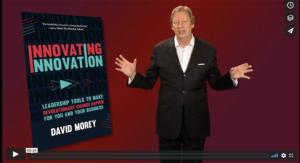13 Nov Release Early and Often
 Still in the throes of the Great Depression, he rises confidently to begin what will become a larger and historic rising of an entire nation. Holding tightly to the podium on the stage of Atlanta’s Fox Theatre, he has minutes ago accepted an honorary degree on this night of May 22, 1932, from Oglethorpe University. The university’s president, Thornwell Jacobs, has handed him his honorary degree. He had given or will later give similar degrees to William Randolph Hearst, Bernard Baruch, Walter Lippmann, Amelia Earhart, and David Sarnoff.
Still in the throes of the Great Depression, he rises confidently to begin what will become a larger and historic rising of an entire nation. Holding tightly to the podium on the stage of Atlanta’s Fox Theatre, he has minutes ago accepted an honorary degree on this night of May 22, 1932, from Oglethorpe University. The university’s president, Thornwell Jacobs, has handed him his honorary degree. He had given or will later give similar degrees to William Randolph Hearst, Bernard Baruch, Walter Lippmann, Amelia Earhart, and David Sarnoff.
Picture this: A nation brought to its knees by economic crisis is waiting to be inspired by a man unable to walk, currently the governor of New York, and fighting hard for his party’s nomination against the more conservative Al Smith. A month before, Roosevelt began disrupting the usual political dialogue with an Albany radio address about the “forgotten man.” He lambasted the idea of “trickle down” economic proposals that fail to build recovery “from the bottom up.” This is a popular position. But his nation still wants more, and the disabled man senses that he needs to give them more.
Ironically, the draft emanates from those charged with writing about it: the press. Days before, Roosevelt is picnicking in Warm Springs, Georgia, with three members of the press—it is a different era from ours—who tease him about the cautious campaign speeches that have followed his provocatively inspiring “forgotten man” address. Teasing back, Roosevelt playfully challenges the writers: “Well, if you boys don’t like my speeches, why don’t you take a hand at drafting one yourselves?”
They do.
Reporters Ernest Lindly, Walter Brown, and Louis Ruppel produce a draft. Following his political instinct, the candidate likes it and uses it.
Now it is 7:45 p.m., and the disabled man, standing with difficulty at the podium, has delivered the customary salutations and is busy challenging boldly the established order, the status quo, the state of affairs that has delivered and deepens the Great Depression. He is just warming up. Near the end of the speech, the New York governor lifts his head high above the podium, as if speaking to someone not actually in attendance, and so begins the singing cadence that will become as famous as it is inspirational:
“This country needs, and unless I mistake its temper, the country demands bold persistent experimentation. It is common sense to take a method and try it. If it fails, admit it frankly and try another. But above all, try something.”

Sorry, the comment form is closed at this time.